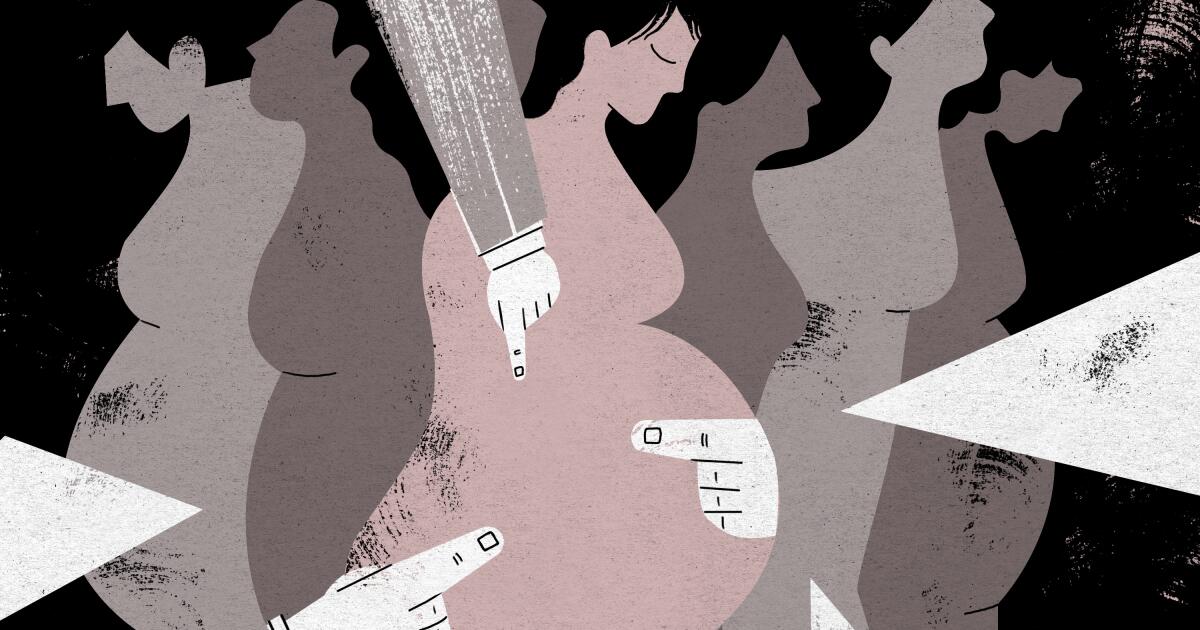Recent comments made by former President Donald Trump about pregnancy have reignited discussions surrounding maternal health and societal perceptions of expectant mothers. On October 26, 2023, Trump took to his social media platform, Truth Social, to caution pregnant women against using acetaminophen, suggesting that doing so could lead to autism in their children. This claim lacks scientific backing, as both the American College of Obstetricians and Gynecologists and Trump’s own Food and Drug Administration have found insufficient evidence to support such a link.
Trump’s remarks come at a time when the conversation around pregnancy and maternal health is becoming increasingly fraught. In a Cabinet meeting earlier this month, Trump endorsed comments made by Robert F. Kennedy Jr., who expressed alarm over women taking pain relief during pregnancy. Kennedy’s controversial statements included a vivid, albeit inaccurate, description of pregnant women using Tylenol, which he claimed was irresponsible.
The implications of such statements are significant. They tap into a long-standing cultural narrative that blames women for their children’s health outcomes. This perspective echoes the 19th-century pseudoscience known as the “doctrine of maternal impression,” which suggested that a mother’s thoughts or experiences could physically affect her unborn child. Cultural historian Karen Weingarten notes that this belief, once popular, has resurfaced in modern discourse around pregnancy, leading to stigmatization of women’s choices.
The consequences of this narrative can be seen in the case of Hali Burns, an Alabama woman who was arrested in 2022 shortly after giving birth. She faced charges of chemical endangerment of a child due to her past struggles with opioid addiction, despite her son being born healthy. In a system where pregnancy is often treated with suspicion, Burns’ story highlights the harsh realities many women face. She spent months in jail under grim conditions, denied adequate health care, and struggled with the fallout of losing custody of her children.
Alabama has become a focal point for criminalizing pregnant women, leading the nation in such charges, according to data from Pregnancy Justice. Between 2022 and 2024, the organization reported that 192 individuals faced legal repercussions related to their pregnancies. The state’s laws allow for prosecution based on the notion that embryos and fetuses should be afforded the same protections as born children, a stance that has real-world implications for women’s rights and health care.
The anti-abortion movement has framed the conversation around pregnancy as one that prioritizes the unborn, often at the expense of the mother’s autonomy. As documented by Pregnancy Justice, many women across the United States have faced charges for behaviors deemed harmful to their pregnancies, including substance use and even failing to seek prenatal care. This occurs in a context where a significant number of counties lack adequate access to maternal health services, as highlighted by the March of Dimes.
In the current climate, where the aftermath of the Supreme Court’s decision in Dobbs v. Jackson Women’s Health Organization has intensified scrutiny on women’s reproductive choices, the narrative surrounding pregnancy has shifted dramatically. Many women are now treated as potential criminals rather than as individuals deserving of support and care.
As Trump and Kennedy continue to amplify their views, they contribute to a growing stigma around pregnancy, placing undue pressure on women already navigating complex health decisions. The rhetoric surrounding maternal health appears to be less about fostering a supportive environment and more about control and judgment.
The ongoing debate raises critical questions about how society views pregnancy and the rights of women. With narratives rooted in outdated science and harmful stereotypes, the path forward must prioritize evidence-based care and support for pregnant individuals rather than punitive measures. As highlighted in Irin Carmon‘s new book, “Unbearable: Five Women and the Perils of Pregnancy,” there is a pressing need to address how these issues affect women’s lives and health in a meaningful way.







